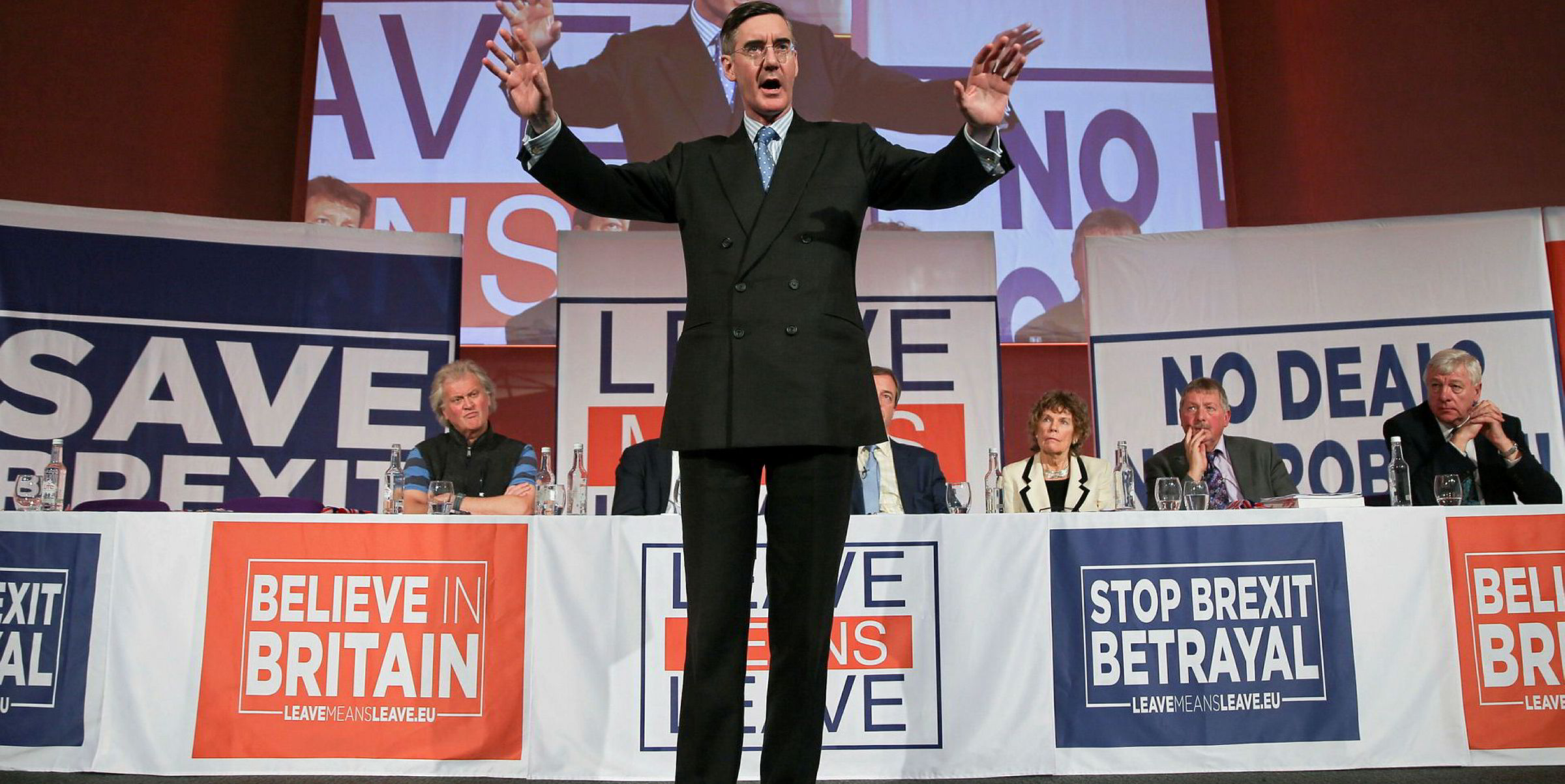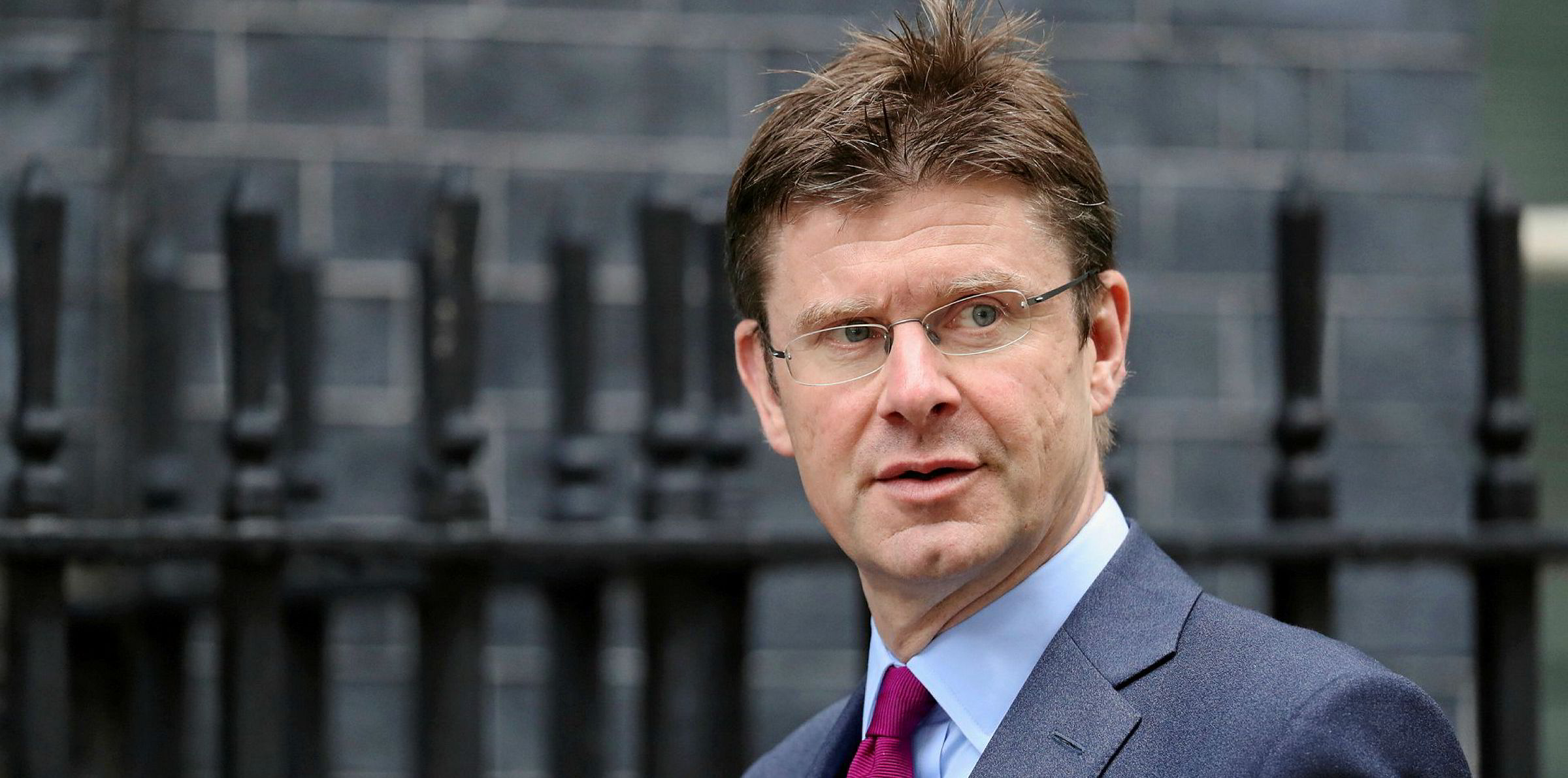The UK government has dealt the wind industry a crushing blow by giving way to pressure from right-wing Conservatives by refusing to allow onshore wind back into the Contracts for Difference (CfD) renewable auctions process.
UK energy secretary Greg Clark told Recharge that the government position on onshore wind will continue to reflect its manifesto commitment made before the last general election to halt subsidy support for onshore wind.
“The position as outlined in the manifesto is one we should maintain. We have a settled position on wind power where the success we have had with offshore wind has been a strategic success as a result of industrial policy”.
The onshore decision, revealed by Clark at a parliamentary committee hearing on Wednesday morning, represents a climb-down from earlier promises made by energy minister Claire Perry to put the prospect of large-scale onshore wind development in Scotland and Wales firmly back on the agenda. She had pledged to see if new rules could be put in place within the CfD structure “to allow the deployment of onshore wind in those parts of the UK which are keen to see it, and it isn’t controversial”.
The industry and opposition politicians reacted with dismay and anger at the decision not to reopen the issue. New UK onshore wind installation plummeted by nearly 80% last year to 598MW — their lowest level since 2011, according to industry body RenewableUK.
“By stacking the deck against onshore wind, the Secretary of State is setting himself against cheap power for UK consumers. As the cheapest source of new power, onshore wind can keep bills down and help us hit our carbon targets,” Hugh McNeal, chief executive of RenewableUK, told Recharge.
“Following the recent suspension of the new nuclear plant at Wylfa, it’s clearer than ever that the UK is facing a growing energy gap which the Secretary of State’s opposition to onshore wind will only worsen.”
The move follows the recent announcement that Japanese conglomerate Hitachi has shelved plans to develop a new nuclear power station at Wylfa in north Wales, leaving Britain with a massive shortfall in electricity supply in the mid-2020s.
Major onshore wind operators and OEMs have strongly urged the UK government to let onshore wind back into the renewables auctions process as a route to market for subsidy-free projects.
Industry sources suggested that Clark and prime minister Theresa May had caved into right-wing Brexiteers within the Tory party. Many Brexit-supporting MPs around the European Research Group led by Jacob Rees-Mogg are also strong opponents of onshore wind.
The Conservatives’ 2015 pre-election manifesto pledged to “halt the spread” of onshore wind farms by ending “any new public subsidy” for developments and changing planning laws to give local communities more power.
The move followed a policy U-turn by former UK prime minister David Cameron who had been forced to give way to pressure from over 100 Tory backbenchers who had demanded cuts in the subsidy support previously paid to the onshore wind industry.
“Unfortunately stopping onshore wind has become an icon of Tory party policy,” Lord Teverson, chair of the House of Lords’ EU Energy and Environment sub-committee told Recharge.
“Some people have a big issue with UK onshore wind farms, but for me they are an indication of a living countryside. To not allow them back into the CfD mix shows a lack of guts and political will.”
Doug Parr, chief scientist at Greenpeace UK, told Recharge that “the UK urgently needs to decarbonise our energy sector and it's a huge challenge given where we are and how fast we need to go.
“Nuclear has ruled itself out, restricting the government’s commercially viable options to renewables. The government ruling out other sources like cheap, popular onshore wind makes the job even harder, and makes delivery of clean energy supplies more difficult and more expensive.
“The UK government likes to talk up its climate leadership, but we’re still a long way from the level of climate action we need. It’s best not to try to do it with one hand tied behind your back, "added Parr.
“We have seen for some time that Brexit has been definitely slowing up the whole process of getting onshore wind back into CfD auctions. However, we are going to keep pushing for it,” said the industry source.
The wind industry is still hoping to achieve its long-delayed sector deal for offshore wind by the end of this month.
The industry is also starting to look at the whole issue of repowering/life extensions for first-generation onshore wind farms in the UK as an argument to get the government to change course.
Note: Update adds further comments


